Young photojournalists' work on show
- Published
Work by students on the Photojournalism & Documentary Photography degree course at the London College of Communication is now on show in London, here is a selection of pictures from some of those who have graduated.
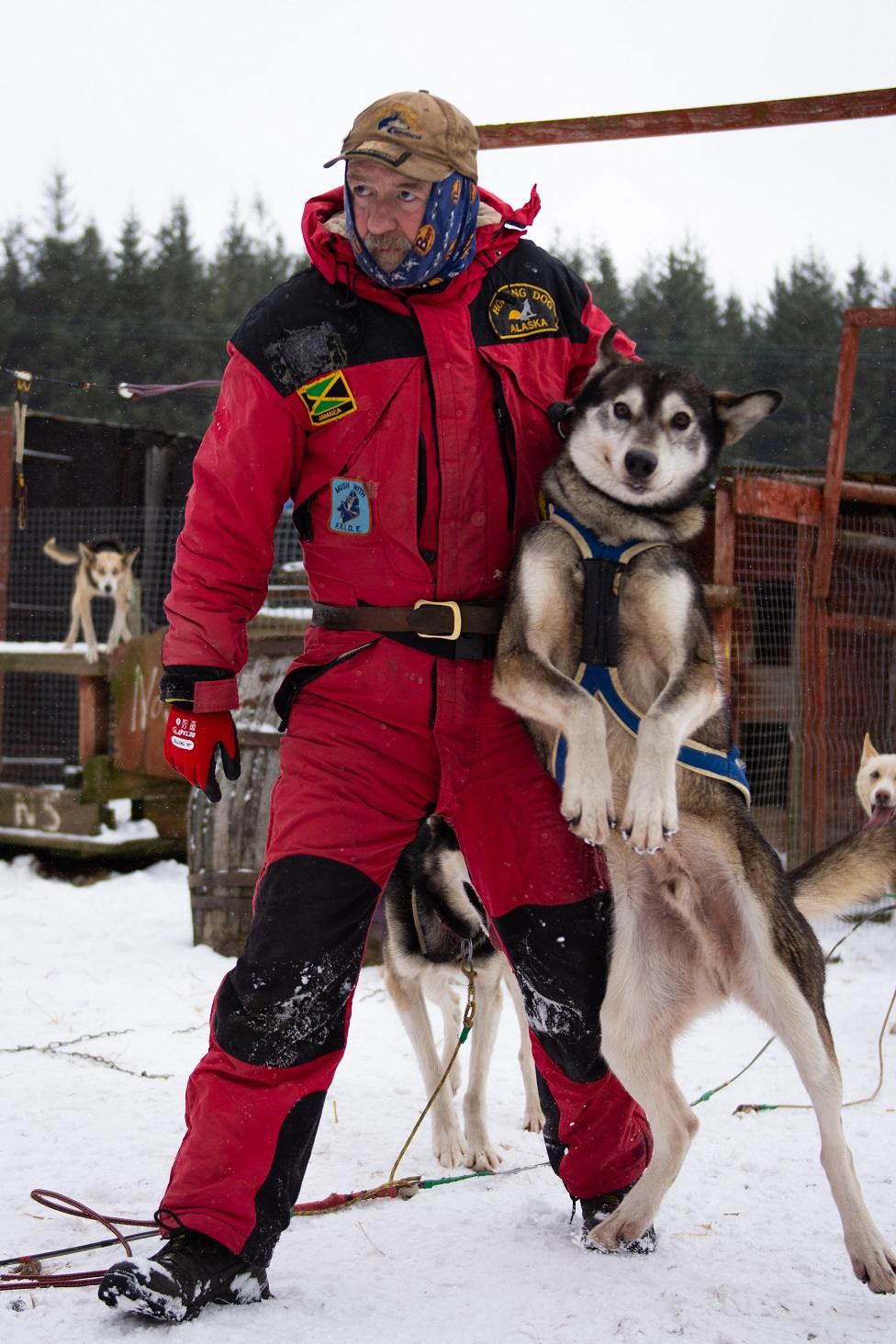
The last winter, by Roisin Savage
Roisìn Savage focused her project on the small Scottish town of Aviemore, where a working British dog sled centre can be found in the Rothiemurchus Estate.
The Cairngorm Sleddog Centre, home to Alaskan husky sled dogs, has been run by Alan and Fiona Stewart for nearly 20 years.
Changes in the climate in the Scottish Highlands mean that snow and temperatures are no longer suitable for the couple's livelihood. They decided that the winter of 2017-18 was their final season running the dog sledding centre.

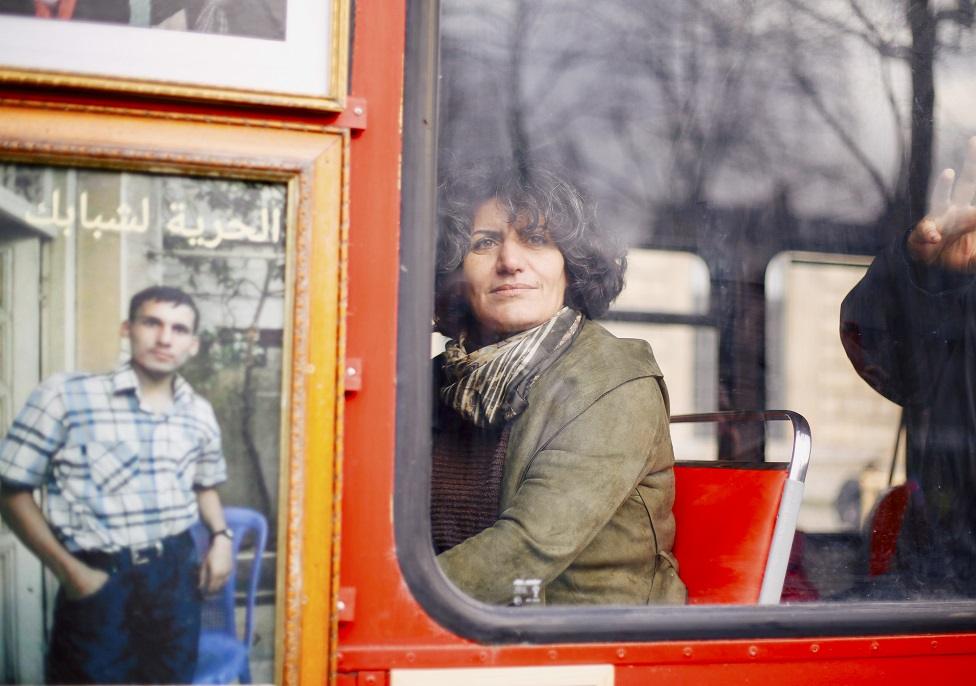
Displaced, by Noor-U-Nisa Khan
Noor-U-Nisa Khan has explored the way organisations help displaced Syrian refugees.
Families for Freedom, pictured above, aim to travel the world in a double-decker bus, covered in pictures of the passengers' missing family members.
They plan to finish their travels in Damascus, where they hope to be reunited with those who are missing.
Khan says: "As viewers to the Syrian war, we have become desensitised to the images we see on the news... we easily forget that lives are being destroyed beyond our TV screens.
"The Syrians who are lucky to escape still have stories to tell."


Great Yarmouth "The finest place in The universe", by Jaime-lea Taylor
Jaime-lea Taylor wanted to document Great Yarmouth to reflect the town's far-reaching history, which has an early reference in the Domesday Book of 1086.
Taylor says: "This is a closer look at a town often dismissed, standing defiantly on the far east of England, waiting to be rediscovered and celebrated as it should be."

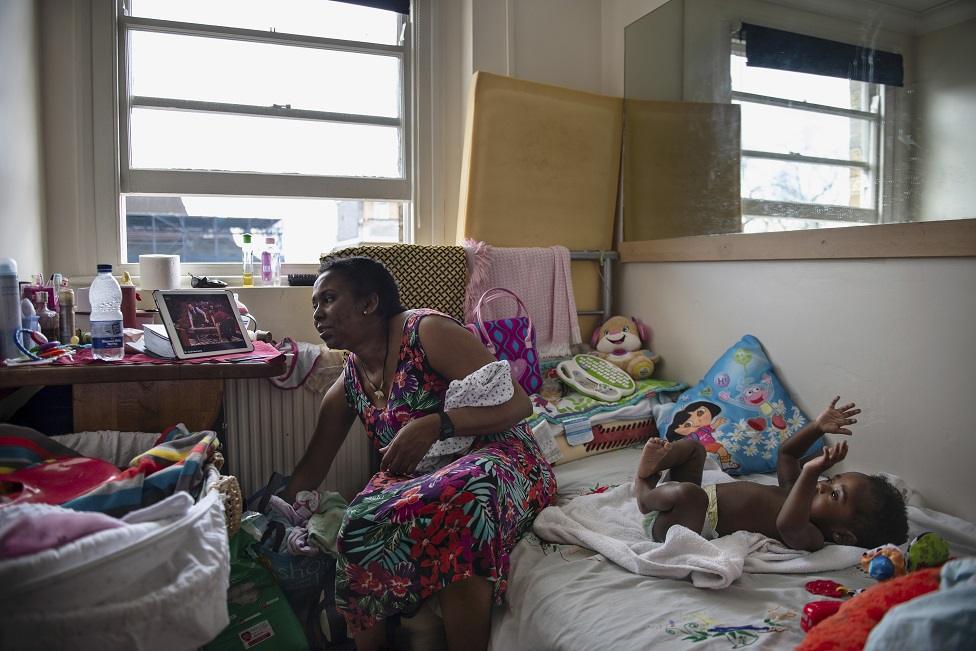
I make a home where I live, by Domizia Salusest
Domizia Salusest wanted to highlight issues in the UK's housing system, where vulnerable individuals are moved from one unstable home to another.
Salusest says: "It is not uncommon for tenants to be stuck in unsafe and overcrowded conditions for years. This vicious cycle can cause serious mental health issues in both adults and children.
"There are stories hidden behind the statistics. There are humans."

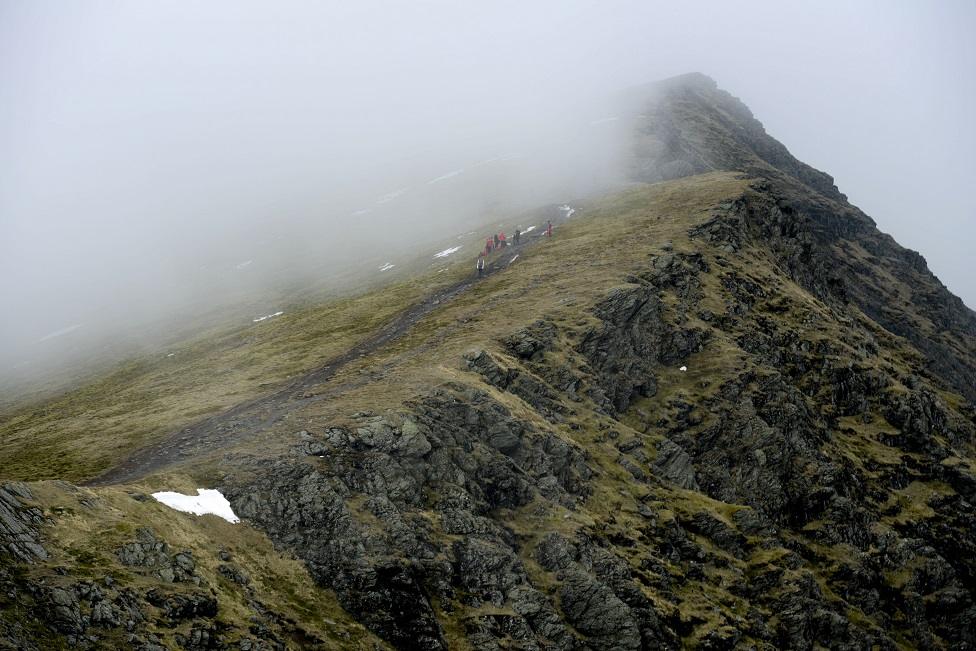
In search of adventures under the guise of helping others, by Florrie Barber
Florrie Barber highlighted the explosion in thrill-seekers who seek adventures in the wilderness, which Barber believes has been fuelled by social media images of outdoor activities.
The rise in the numbers of adventurers has led to an increase in Mountain Rescue emergency call-outs in the British hills.
Barber documented unpaid volunteer Mountain Rescue Teams in the UK, who work round the clock to ensure the safety of hikers.

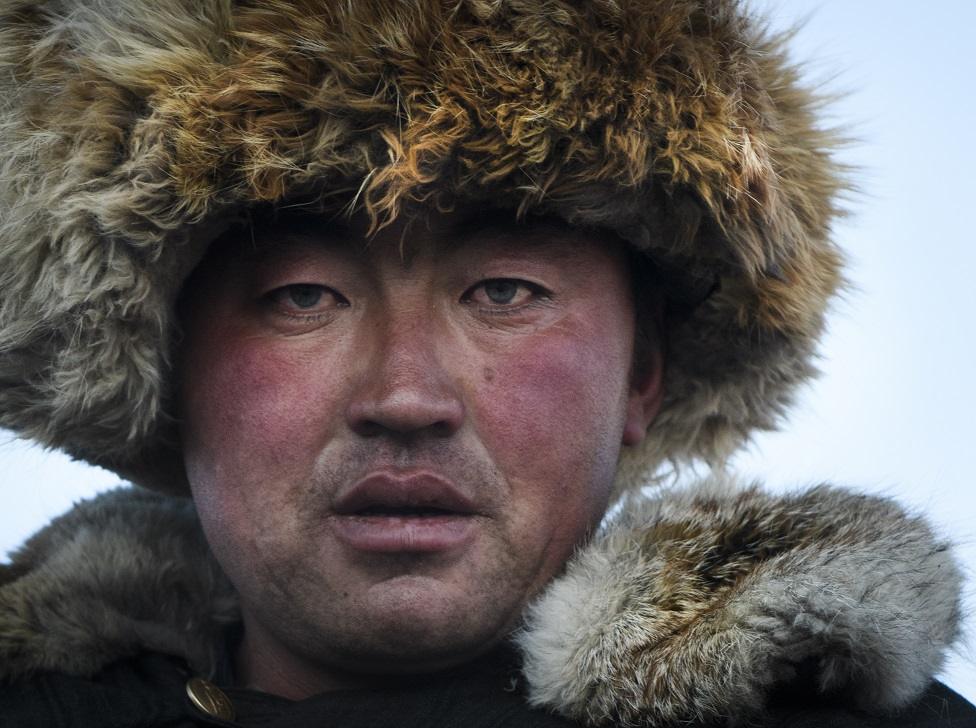
Journey, by Karolina Tornqvist
The mountains of the Altai region of Mongolia were the setting for Karolina Tornqvist's final degree project.
Following a drop in temperature and the melting of snow, the photojournalist joined families and their herds on part of their 300km journey as they returned to the Altai Mountains.
Tornqvist says that the Kazakh families travel much of the journey by truck, however, the livestock have to be herded by foot across the vast landscapes, where temperatures can drop as low as -45C in the peaks.

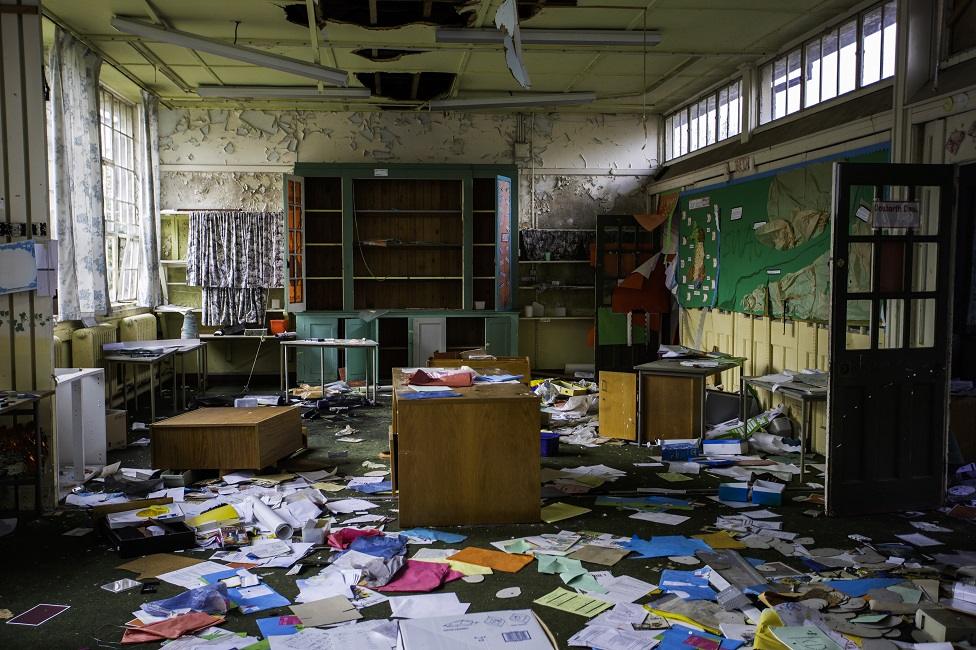
Hiraeth, by Jake Saville
Jake Saville set out to document the communities that have been hit hard by the demise of the mining industries in the South Wales valleys.
Hiraeth, the name of the project, is a Welsh phrase with no direct English translation, but is associated with homesickness, yearning and longing.
Saville says: "Hiraeth gives the valleys the dignity they deserve by capturing the true sense of belonging which all people in the valleys feel towards their home."


Meet, by Baldassare Sciacca
Baldassare Sciacca's portrait series "Meet" explores the power relation between two species.
Sciacca says: "Meet can be viewed as an observation of different contexts in which human-animal relations are formed."

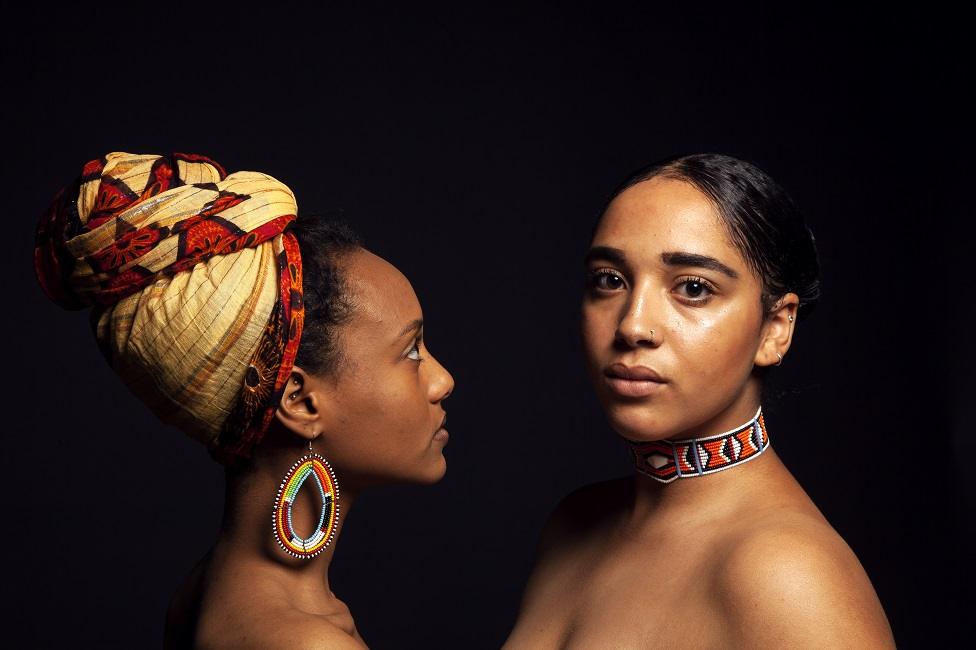
Muhiriga, by Anita Israel
Kenyan-born Anita Israel says that the aim of her series Muhiriga was to "portray the African woman in her truest form, natural hair, no make-up, dark, skin glowing".
Israel's family was part of a tribe in Kenya. She says: "The Kikuyu tribe are the largest, most populous tribe in Kenya. The word 'Muhiriga' comes from the Kikuyu language and when translated means 'Clan'.
"Without the powerful female influences I had growing up, I wouldn't be who, or where I am today."

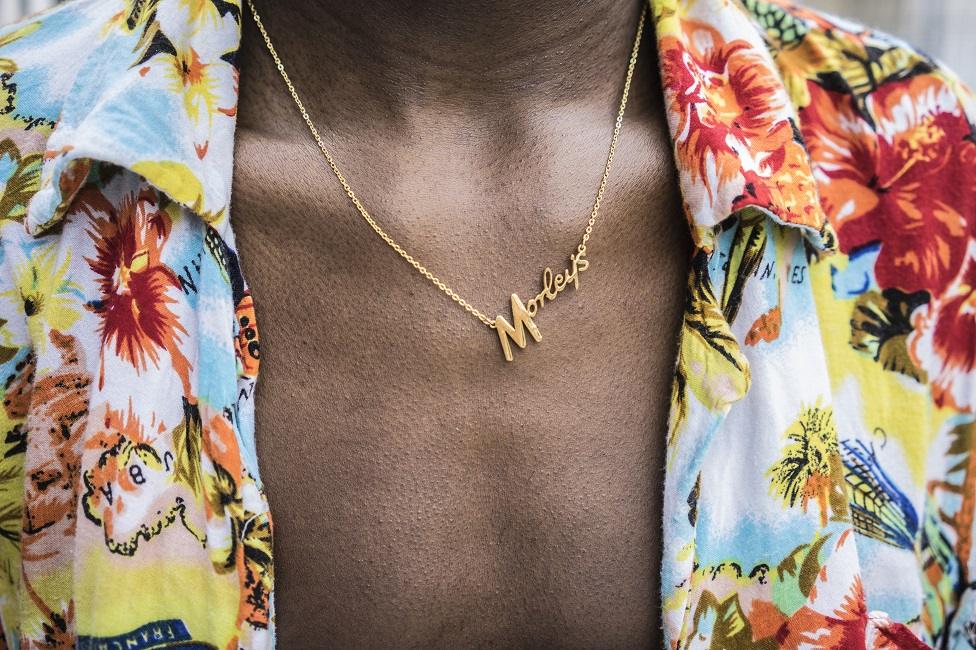
Peckham, by Sebastian Garraway
Sebastian Garraway documented gentrification and development in Peckham, London.
Garraway says: "Peckham has always been subject to changing demographics with the ebb and flow of wealth and labour demands, but now faces a different threat that has the potential to sterilise a community just as has been done elsewhere in London, removing all characteristics that make this city unique."

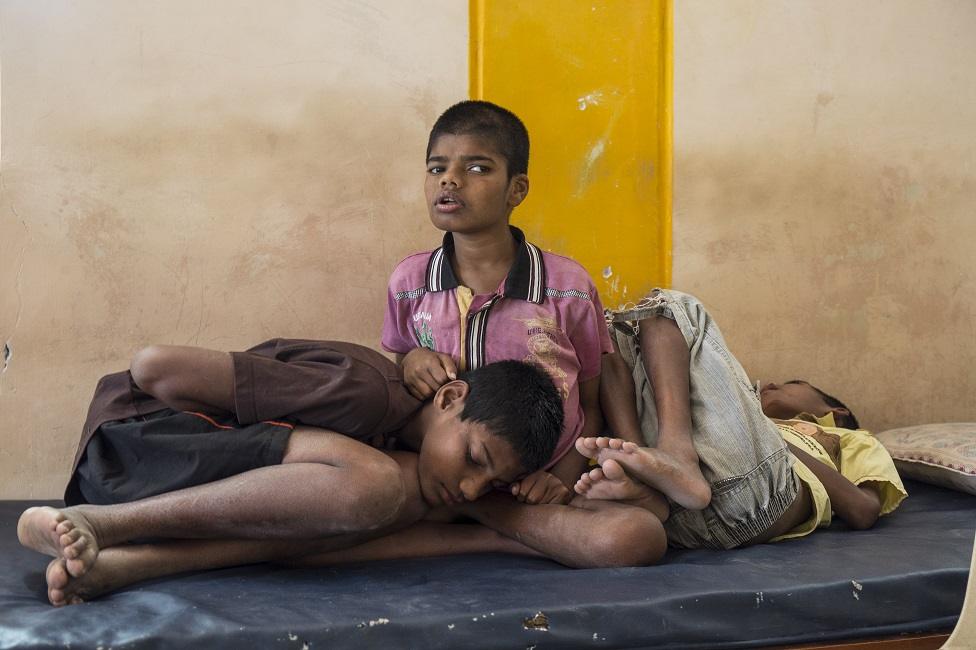
Sri Paripoorna Sanathana Charitable Trust, by Nathan De Ruwe
The inequality between private and public healthcare in India was Nathan De Ruwe's focus for his final year degree project.
De Ruwe says: "Throughout India, charities started taking it upon themselves to create institutions that are able to provide medical treatment for those who do not have the luxury of being able to travel long distances and can't afford private hospitals.
"The Sri Paripoorna Sanathana Charitable Trust was founded with the primary purpose to offer free medical treatment to those in need."

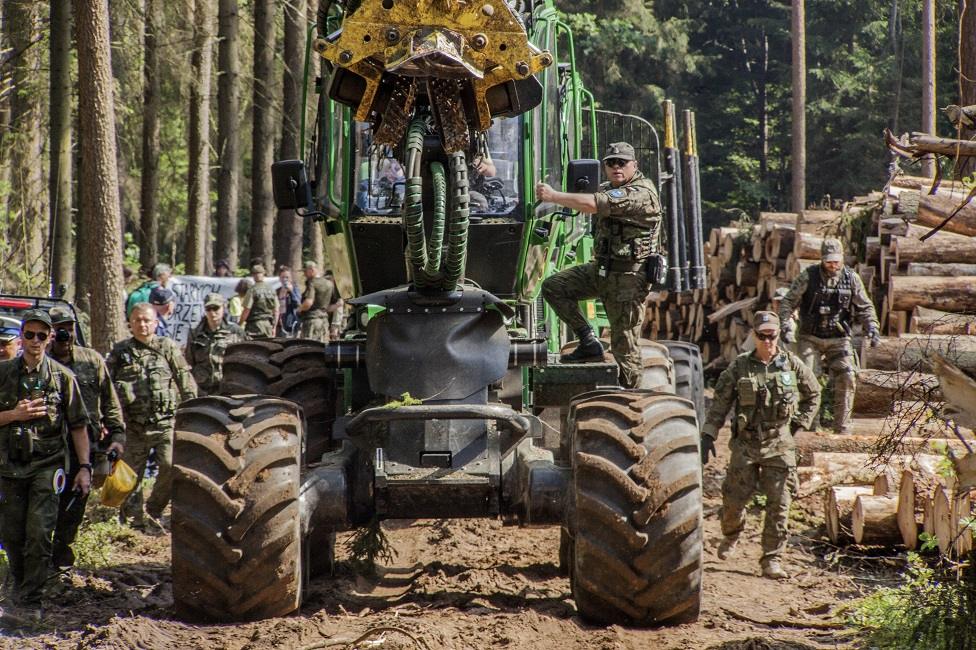
The Białowieza uprising, by Marcin Nowak
Marcin Nowak sought to raise awareness of the tripling of loggings in the Bialowieza Forest in Poland, announced by the Environment Minister Jan Szyszko in March 2016.
The increase in the cutting down of trees was said to be because of an infestation of the European spruce bark beetle
Nowak said: "We are living in a world which is aiming towards self-destruction."

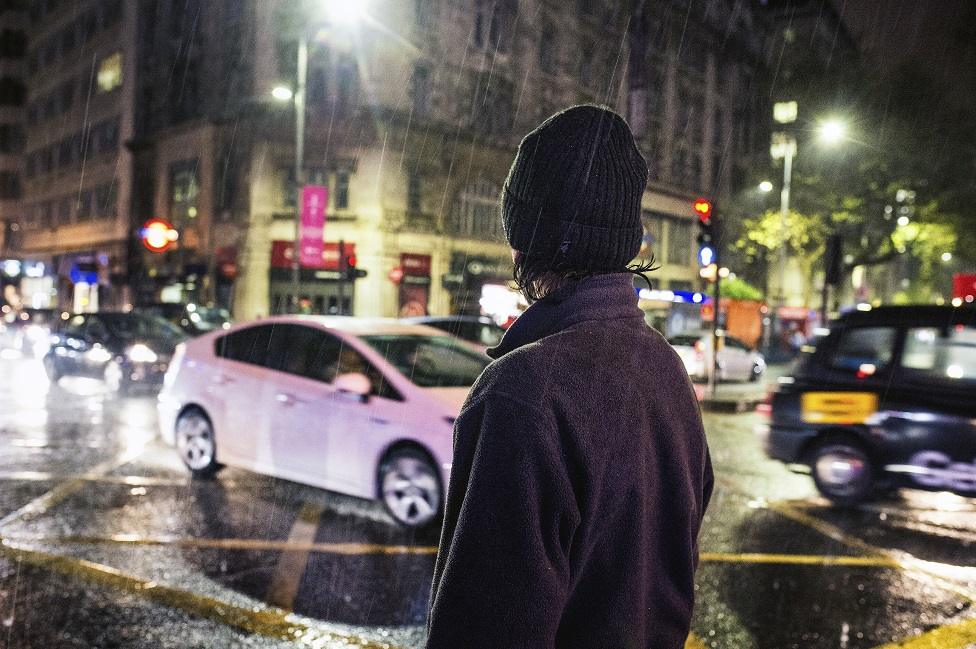
The invisible, by Xingkun Yang
"For centuries, homeless people have been a photographic cliche," photojournalist Xingkun Yang explains, "however, this should not be an excuse for choosing to ignore the issue."
Yang met with 30 homeless people, spending time sitting and eating with them as well as sleeping alongside them outdoors.
"I discovered that the lives of the homeless have so much in common with our lives, like struggling with the fate of some never-ending life spiral.
"They are the refugees of this city, as well as the ones who truly have their freedom, even though the cost of this freedom is sometimes enormous."
The LCC Degree Shows 2018, external runs until 2 June.
- Published17 November 2017
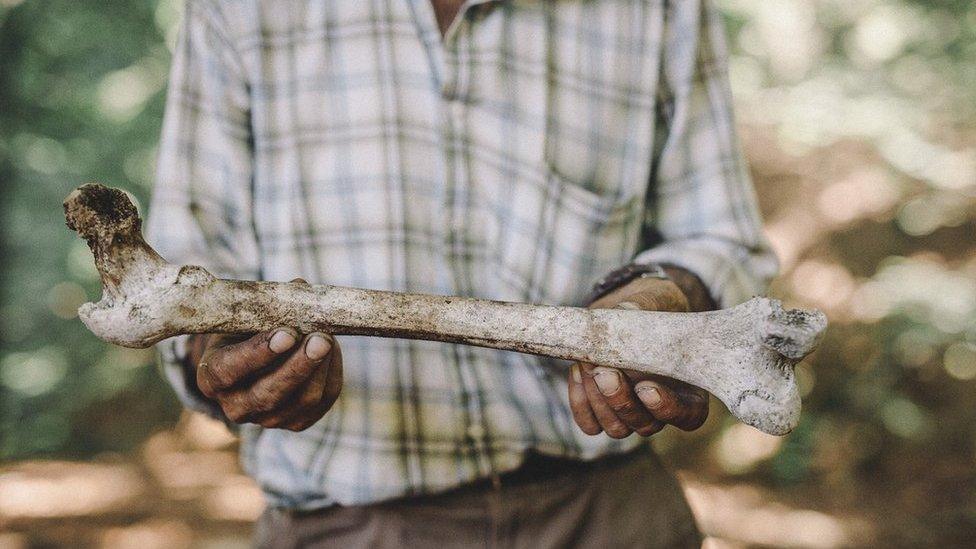
- Published9 May 2014
- Published8 January 2015